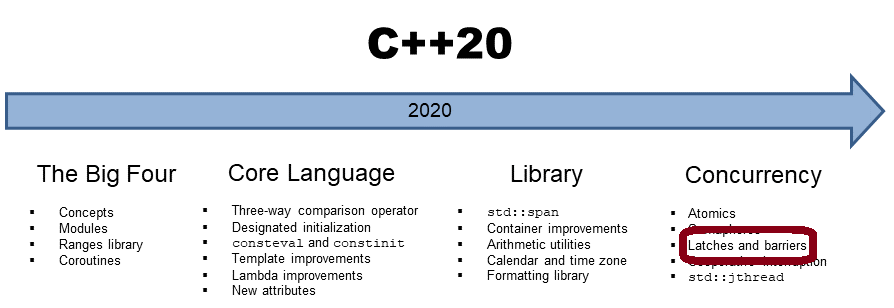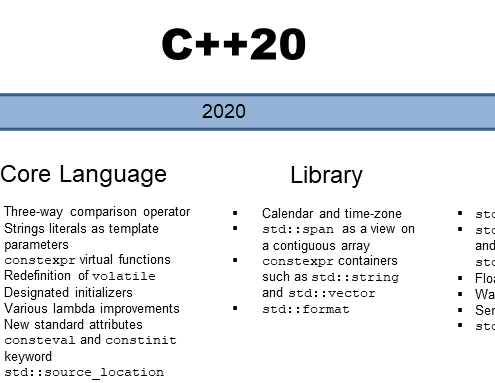
C++20: The Three-Way Comparison Operator
/
2 Comments
The three-way comparison operator <=> is often just called the spaceship operator. The spaceship…

C++20: Further Open Questions to Modules
So far, I have written in my last four posts the basics you should know about modules in C++20. Only…

C++20: Structure Modules
When your module becomes bigger, you want to divide its functionality into manageable components. C++20…

C++20: Module Interface Unit and Module Implementation Unit
Thanks to the module interface unit and implementation unit, you can separate the interface from the…

C++20: A Simple math Module
Modules are one of the four prominent features of C++20. They overcome the restrictions of header files…

C++20: The Advantages of Modules
Modules are one of the four big features of C++20: concepts, ranges, coroutines, and modules. Modules…

C++20: Thread Pools with cppcoro
This post is the third and final post in my miniseries to cppcoro. cppcoro is a library of coroutine…

C++20: Powerful Coroutines with cppcoro
I gave in my last post, "C++20: Coroutines with cppcoro", a basic introduction to the coroutines library…

C++20: Coroutines with cppcoro
The cppcoro library from Lewis Baker gives you what C++20 doesn't: a library of C++ coroutine abstractions…

C++20: Thread Synchronization with Coroutines
It's a typical requirement for thread management to synchronize them. One thread prepares, in this case,…
